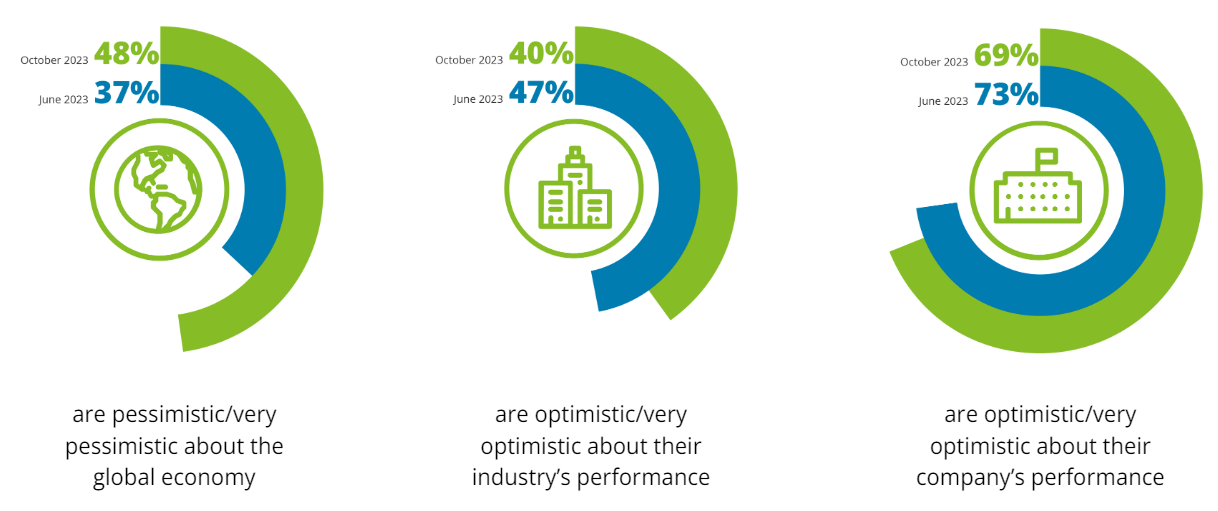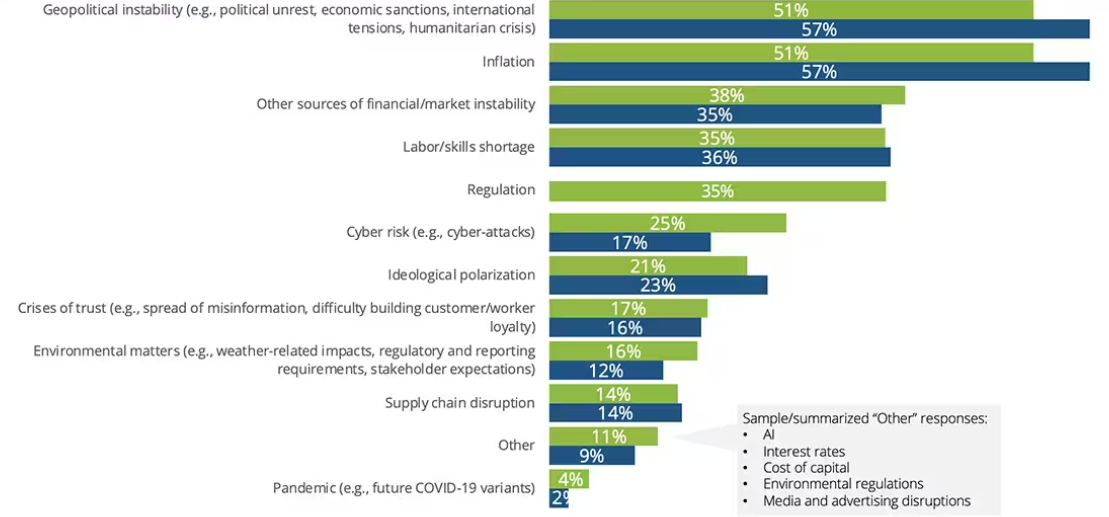Get the newest insights
Let us know your interests and get the most relevant reports, articles and events delivered straight to your inbox!
Sign up here
Deloitte’s recent CEO Survey shows a moderate outlook on the global economy. The CEOs surveyed also said that maintaining growth is one of the biggest challenges they face today.

The majority of CEOs expect some level of organisational growth over the next 12 months despite a moderate outlook for the global economy.
New regulation, global market instability, inflation and labour/skills shortage continue to be among the top concerns for CEOs.
Half of CEOs are investing in social impact initiatives to strengthen their company’s brand and increase long-term shareholder value.
Most CEOs will probably say that growth is the lifeblood of their organisation. After all, a clear focus on growth sends powerful signals to investors and talents alike about a company’s health, its ability to innovate and its potential future performance. For many CEOs, growth is also the foundation for achieving long-term shareholder value, building purpose and increasing the social impact of the company.
Achieving profitable growth, however, is not easy. In our latest Fortune/Deloitte CEO Survey, respondents expressed a fairly tempered view on growth, with an eye on industry headwinds and global instability. A decrease in optimism toward company and industry performance, combined with an overall increase in pessimism, particularly towards the global economy, suggests CEOs are moderating their outlook overall.
For example, in the autumn of 2023, 48% of CEOs were pessimistic or very pessimistic about the global economy (compared to only 37% in the summer of 2023), just 40% were optimistic or very optimistic about their industry’s performance (compared to 47% in the summer of 2023), and 69% were optimistic or very optimistic about their company’s performance (down from 73% in the summer of 2023).

In the survey, we also asked CEOs about their biggest concerns for the coming time. Maybe not surprisingly, geopolitical instability and inflation continue to lead the list of external disruptors – both at 51%. Other sources of financial/market instability (38%) came in third, just as labour and skills shortage continued to be among the top disruptors for CEOs, at 35%.
Interestingly, regulation now joins the top 5, with 35% of the respondents saying that regulation could become a top disruptor for their companies.

![]()
While top disruptors may inform market sentiments, the surveyed CEOs generally reported high confidence in their organisation’s ability to navigate the pressure of disruptors on their business and continue a path of growth.
Organic growth, especially, may often be slower to achieve than inorganic growth such as M&A, but it can frequently generate more value, allowing companies to expand at a controlled pace, adapting their business models and structures along the way.
In conclusion, while CEOs face growing complexity, uncertainty and headwinds at the moment, they are not backing down from seeking new opportunities to build resilience, drive new growth and increase efficiencies through new technology while managing risk. At the same time, providing a meaningful workplace experience and attracting and retaining talent are top of mind as today’s CEOs balance short-term growth and long-term shareholder value related to social and environmental impact.
Find more results from our latest CEO Survey here.
Let us know your interests and get the most relevant reports, articles and events delivered straight to your inbox!
Sign up here